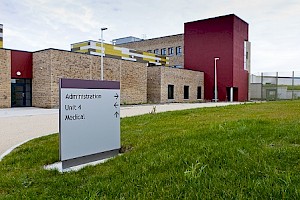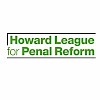Youth Justice
Ireland has a long history of poor responses to offending behaviour by children. A core strand to IPRT's work since its establishment in 1994 has been the promotion of a more effective youth justice system, with emphasis on non-custodial alternatives, diversion, early intervention and prevention strategies and programmes. Central to our work was ending the practice of detaining children in adult prisons, which was in breach of international human rights standards and a serious stain on Ireland's human rights record.
International human rights standards, and in particular the provisions of the UN Convention on the Rights of the Child, are clear that custody for children should only be used as a last resort and for the minimum required period of time. All efforts should be made to apply alternatives to detention to ensure that such a measure is only used in exceptional circumstances.
In Ireland, the Children Act 2001 recognizes the principle of detention as a last resort. The Act prohibits the imprisonment of children and the Criminal Justice Act 2006 makes provision for all children less than 18 years of age to be detained in Children Detention Schools. The detention school model is focused on a model of care, education, health and programmes that address offending, with improved outcomes for the young people, their communities and all of society. The Irish Youth Justice Service is responsible for the Children Detention Schools, within the Department of Children and Youth Affairs.
Following years of sustained advocacy by IPRT, along with many national and international bodies, in 2012 the detention of boys aged under 17 at St Patrick's Institution ended. In March 2017, a Ministerial Order ended the sentencing of children aged under 18 to adult prison in Ireland, and in April 2017, St. Patrick’s Institution was finally closed. Since September 2017 boys aged under 18 are no longer detained in the adult prison system.
IPRT continues to work towards progressive change in youth justice policies and practice, as well as engaging with wider policy and practice issues relating to youth justice, such as the provision of alternatives to detention, diversion and early intervention programmes.

Extension of successful Bail Supervision Scheme which keeps children out of detention shows value of evidence-led initiatives
8th June 2020
MEDIA ADVISORY: The Bail Supervision Scheme keeps children and young people out of detention, helps children adhere to bail conditions, reduces reoffending, and reduces the use of custodial sanctions for children. Therefore, the Irish Penal Reform Trust (IPRT) welcomes the announcement by Minister for Children and Youth Affairs, Dr. Katherine Zappone, of the Scheme’s extension.

UK: Ending the Detention of Unsentenced Children during the COVID-19 Pandemic
18th May 2020
Custody is a damaging environment for children in normal times, but due to the COVID-19 pandemic, conditions in custody have worsened for imprisoned children. The Howard League has produced guidance for legal practitioners on how to keep unsentenced children out of pre-trial detention.
IPRT welcomes Draft Youth Justice Strategy proposals to extend youth justice supports to young adults aged up to 24
4th May 2020
ADVISORY: Proposals to extend youth supports to young adults aged up to 24, place a positive duty on State agencies to work together, and a clear and consistent focus on reaching hard-to-reach groups are among a number of evidence-informed progressive elements included in the Draft Youth Justice Strategy.
Joint Committee on Justice and Equality publish report on Spent Convictions (Oct 2019)
22nd November 2019
The Oireachtas Joint Committee on Justice and Equality held a public hearing in July 2019 on the issue of spent convictions. IPRT gave evidence as a witness in this hearing and the final report and recommendations were published in October 2019.
IHREC Comments on Ireland’s 16th National Report on the implementation of the European Social Charter
10th June 2019
In its Comments on Ireland’s 16th National Report on the implementation of the European Social Charter, IHREC examines the protection of rights and equality for children in detention.
Joint Submission to the Operational Review of Oberstown Detention Campus
31st May 2019
In December 2016, IPRT and four other NGOs concerned with the protection of the rights of children made a submission to the Operational Review of Oberstown outlining key operational issues from a children’s rights’ perspective.
Scotland: Mental Health and Wellbeing of Young People in Custody
21st May 2019
The Scottish Centre for Crime and Justice Research (SCCJR) has published a review identifying ways to improve the health and wellbeing of young people in custody.

Guest blog for the Howard League for Penal Reform
4th April 2019
Authors of IPRT's 'Care and Justice' report, Dr Nicola Carr and Dr Paula Mayock, wrote a guest blog for the Howard League for Penal Reform's blog on ending the criminalisation of children in residential care.
IPRT welcomes the launch of two significant youth justice reform initiatives
27th March 2019
The Minister of State for Equality, Immigration and Integration, David Stanton TD, today launched the ‘GYDP Action Research Project’ and the ‘Making it Count’ study.

Care and Justice: Children and Young People in Care and Contact with the Criminal Justice System
26th February 2019
This report contains 12 recommendations on the need for reform in the area of children with care experience who come into contact with the criminal justice system.




